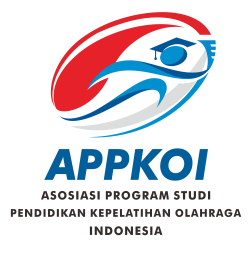Integration Of Ethical Values In Sports Learning In Schools
DOI:
https://doi.org/10.31599/9mhthh53Keywords:
Sports Learning, Sportsmanship, Literature Review, Value IntegrationAbstract
This study aims to analyze the integration of ethical values in sports learning in schools through a literature review approach. Ethical values, such as sportsmanship, fairness, responsibility, and cooperation, are important components in sports learning that can shape students' characters. However, the implementation of these values in learning practices often faces various challenges, such as pressure on competitive results, limited teacher training, and minimal curriculum support. This review explores the concept, model, and strategy of integrating ethical values in sports learning based on relevant literature. The results of the analysis show that value-based learning models, such as Teaching Personal and Social Responsibility (TPSR), have succeeded in increasing ethical awareness and positive behavior of students in various contexts. In addition, this study highlights the importance of the role of teachers as value facilitators, as well as the need for institutional support to systematically integrate ethical values into the sports education curriculum. This review also identifies gaps in research related to the implementation of ethical values in developing countries, including Indonesia, which has unique cultural characteristics and education systems. This study recommends the development of educational policies that focus on strengthening ethical values in sport, intensive training for teachers, and further studies that measure the impact of ethical values integration on students' character development
Downloads
References
Bean, C., & Forneris, T. (2017). Coaching life skills through sport in high school physical education: A study of leadership strategies. Journal of Physical Education, Recreation & Dance, 88(2), 29–35.
Braun, V., & Clarke, V. (2006). Using thematic analysis in psychology. Qualitative Research in Psychology, 3(2), 77-101.
Camiré, M., & Trudel, P. (2014). High school athletes' perspectives on character development through sport participation. Physical Education and Sport Pedagogy, 19(4), 489–503.
Coakley, J. (2015). Assessing the sociology of sport: On cultural sensibilities and the great sport myth. International Review for the Sociology of Sport, 50(4-5), 402–406.
Donnelly, P., & Coakley, J. (2002). The role of recreation in promoting social inclusion. Leisure Studies, 21(1), 65–83.
Gould, D., & Carson, S. (2008). Life skills development through sport: Current status and future directions. International Review of Sport and Exercise Psychology, 1(1), 58–78.
Hellison, D. (2011). Teaching Personal and Social Responsibility Through Physical Activity. Human Kinetics.
Hofstede, G. (2001). Culture's Consequences: Comparing Values, Behaviors, Institutions, and Organizations Across Nations. Sage Publications.
Jones, R.L., Armour, K.M., & Potrac, P. (2004). Sports Coaching Cultures: From Practice to Theory. Routledge.
Lumpkin, A., Stoll, S. K., & Beller, J. M. (2003). Sport ethics: Applications for fair play. McGraw-Hill Higher Education.
MacNamara, Á., Button, A., & Collins, D. (2010). The role of psychological characteristics in facilitating the pathway to elite performance part 2: Examining environmental and stage-related influences. The Sport Psychologist, 24(1), 74–96.
Northouse, P. G. (2019). Leadership: Theory and Practice (8th ed.). Sage Publications.
Shields, D. L., & Bredemeier, B. L. (2009). True Competition: A Guide to Pursuing Excellence in Sport and Society. Human Kinetics.
Siedentop, D. (1994). Sport Education: Quality PE through Positive Sport Experiences. Human Kinetics.
Smith, A. L., & Smoll, F. L. (1997). Behavioral research and intervention in youth sports. Pediatric Exercise Science, 9(1), 3–20.
Snyder, H. (2019). Literature review as a research methodology: An overview and guidelines. Journal of Business Research, 104, 333–339.
Standage, M., Duda, J. L., & Ntoumanis, N. (2003). A model of contextual motivation in physical education: Using constructs from self-determination and achievement goal theories to predict physical activity intentions. Journal of Educational Psychology, 95(1), 97–110.
Taylor, I. M., & Ntoumanis, N. (2007). Teacher motivational strategies and student self-determination in physical education. Journal of Educational Psychology, 99(4), 747–760.
Whitehead, J. (2013). Why are ethics important in sports coaching? Sports Coaching Review, 2(2), 195–207.
Downloads
Published
Issue
Section
License
Copyright (c) 2025 Zaenal Abidin, Masduki Ahmad, Suryadi

This work is licensed under a Creative Commons Attribution 4.0 International License.






.png)







